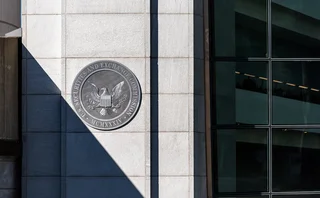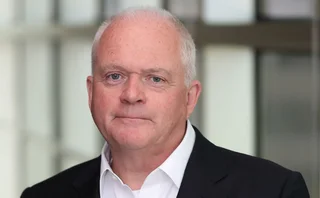
US reforms mean more bailouts and centralised power
Plans to reform US financial services oversight will open the way for more bailouts of financial companies and more centralised regulation.
In a speech today, US Treasury Secretary Henry Paulson said he planned to merge the Securities and Exchange Commission (SEC) with the Commodity Futures Trading Commission (CFTC). The reforms would also strengthen the power of the President's Working Group on Financial Markets (PWG), turning it from a specialised advisory group to an oversight body for the entire financial industry, responsible for co-ordinating all other financial regulators and reporting directly to the President. The PWG does not hold meetings in public and reportedly does not keep minutes of its meetings.
The reform proposals also deal with the recent decision - presented at the time as an emergency measure - to provide Federal Reserve support to securities brokers, despite the fact that its regulatory authority is limited to depository banks. While Paulson said that "it would be premature to assume these institutions should have permanent access to the Fed's discount window and permanent supervision by the Fed", the blueprint for reform, released over the weekend, said that "given the increased importance of non-depository institutions to overall market stability" the Fed should prepare to improve transparency and oversight of such loans.
"The historic focus of Federal Reserve discount window lending reflects the relative importance of banks as financial intermediaries and a desire to limit the spread of the federal safety net. However, banks' somewhat diminished role and the increased role of other types of financial institutions in overall financial intermediation may have reduced the effectiveness of this traditional tool in achieving market stability," the blueprint document said.
In future, while "normal" discount window lending to depository banks would continue, "market stability lending" would allow the Fed to lend to any financial institutions it wanted - in return for the authority to conduct examinations of the borrowers.
In emailed statements, CFTC chairman Walter Lukken said he had not had time to read the proposals - there was no CFTC representative on the original committee of industry leaders convened in March 2007 to look into reform, or in the group that finally drew up the blueprint - but warned that "unless the securities laws are first rationalised with those governing the futures markets, a merger may ironically make the US futures industry less competitive globally and run counter to the explicit goal of this important endeavour".
CFTC commissioner Bart Chilton denounced the proposals as unnecessary meddling. "I don't hear a call from the countryside for moving boxes around in Washington DC or the need for some omnipresent super-regulator. I think most Americans would prefer that government do our jobs, and that means doing everything possible to cauterise the subprime mess before performing major surgery on a regulatory system, parts of which are still very healthy," he said.
See also: Fed will support securities market directly
Fed bails out Bear Stearns
CFTC asks Congress for greater powers over ECMs
Risk Books: The Financial Regulator
Only users who have a paid subscription or are part of a corporate subscription are able to print or copy content.
To access these options, along with all other subscription benefits, please contact info@risk.net or view our subscription options here: http://subscriptions.risk.net/subscribe
You are currently unable to print this content. Please contact info@risk.net to find out more.
You are currently unable to copy this content. Please contact info@risk.net to find out more.
Copyright Infopro Digital Limited. All rights reserved.
As outlined in our terms and conditions, https://www.infopro-digital.com/terms-and-conditions/subscriptions/ (point 2.4), printing is limited to a single copy.
If you would like to purchase additional rights please email info@risk.net
Copyright Infopro Digital Limited. All rights reserved.
You may share this content using our article tools. As outlined in our terms and conditions, https://www.infopro-digital.com/terms-and-conditions/subscriptions/ (clause 2.4), an Authorised User may only make one copy of the materials for their own personal use. You must also comply with the restrictions in clause 2.5.
If you would like to purchase additional rights please email info@risk.net
More on People
People: JP Morgan’s data and AI move, Eurex clearing chief, and more
Latest job changes across the industry
JP Morgan AI research founder and head departs
Manuela Veloso leaves as bank announces greater spend on tech and AI
SocGen’s head of US Treasury clearing preparations to depart
Bank’s head of product for FX and fixed income prime brokerage for the Americas set to leave later this month
People: You’re fired! US agency rejig, new CROs at ING, StanChart, and more
Latest job changes across the industry
SocGen’s PB clearing head departs for SwapAgent role
Jamie Gavin takes external consulting role for LSEG’s non-cleared swaps platform
Robertson leaves Barclays’ prime services in New York
Head of prime derivatives services unit departs after seven years with the bank for Carbon Point
Citadel Securities hires former Eisler CRO
Pregnell joins market-maker after demise of hedge fund
People: Fishwick hands over BlackRock CRO role, Citi expands Asia FX team, and more
Latest job changes across the industry







